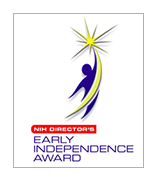2018 Awardees
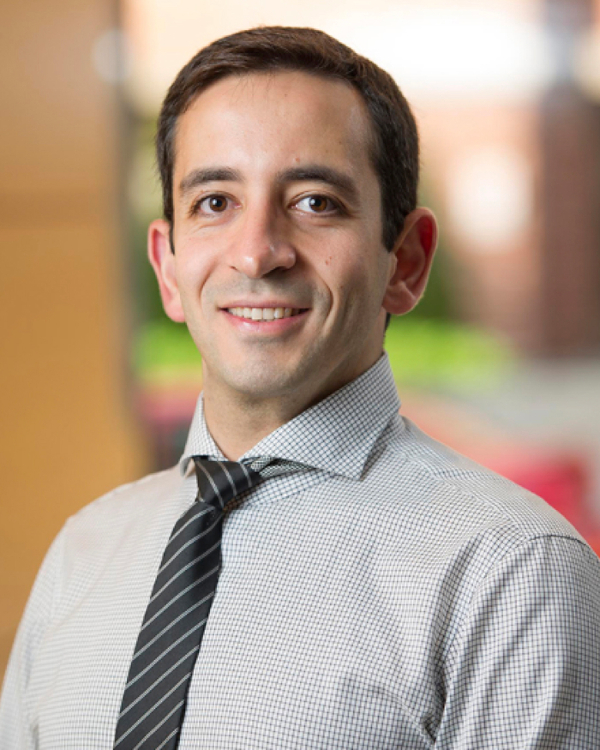
Samuel F. Bakhoum, M.D., Ph.D.
Memorial Sloan Kettering Cancer Center
Project Title: The Role of Chromosomal Instability in Tumor Evolution
Grant ID: DP5-OD26395
Samuel Bakhoum is currently an Assistant Member (Professor) in the Human Oncology and Pathogenesis Program and the Department of Radiation Oncology at Memorial Sloan Kettering Cancer Center (MSKCC). His laboratory focuses on understanding the consequences of chromosomal instability on tumor evolution, centering on cancer metastasis and tumor-immune interaction. Samuel obtained his M.D., Ph.D. at the Geisel School of Medicine at Dartmouth. His graduate research focused on understanding the basic mechanisms of chromosome segregation during cell division. He subsequently completed an internship at Mount Auburn Hospital of Harvard Medical School and residency training in Radiation Oncology at MSKCC. While a resident, he conducted research under the mentorship of Professor Lewis Cantley at Weill Cornell Medicine, focusing on the role of chromosomal instability in tumor metastasis and the generation of a cytosolic DNA response.
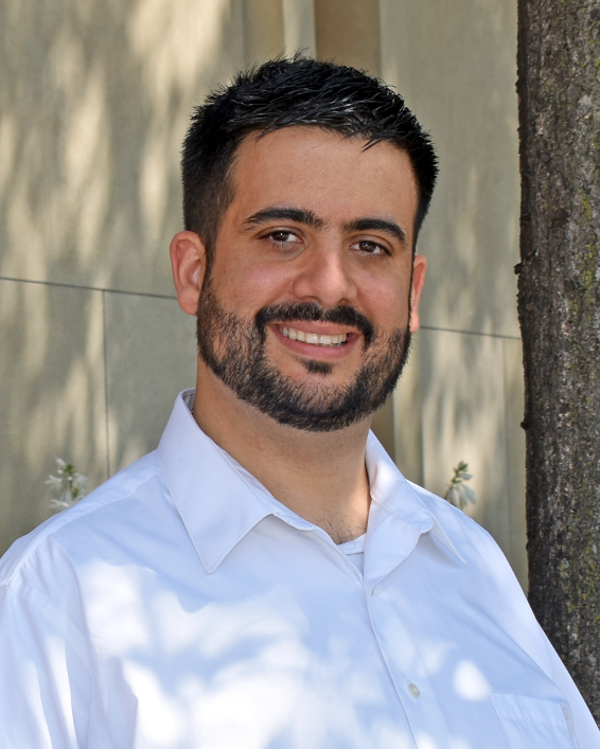
Usama Bilal, M.D., M.P.H., Ph.D.
Drexel Dornsife School of Public Health
Project Title: The Health Consequences of Urban Scaling
Grant ID: DP5-OD26429
Usama Bilal (https://www.usamabilal.info) is currently an Assistant Research Professor in the Urban Health Collaborative and the Department of Epidemiology & Biostatistics at Drexel's Dornsife School of Public Health. His primary research interest is the macrosocial determinants of health, with a specific interest in nutrition-related conditions and their upstream causes. Most of his work focuses on the role that city- and neighborhood-level dynamics have in generating disease, and the use of complexity methodologies to study the emergent properties of urban environments. He has earned a PhD in Cardiovascular Epidemiology from the Johns Hopkins Bloomberg School of Public Health, an MPH from the Universidad de Alcala in Spain, and MD from the Universidad de Oviedo in Spain.
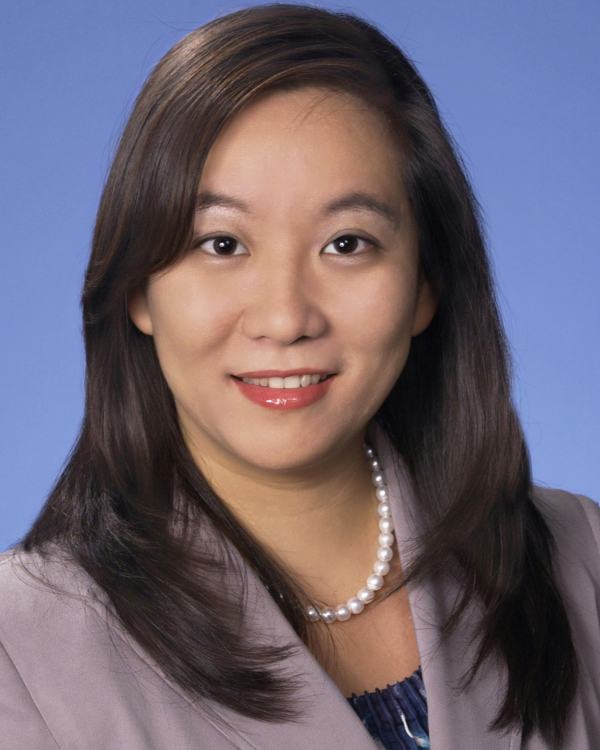
Hsiao-Tuan Chao, M.D., Ph.D.
Baylor College of Medicine, Jan and Dan Duncan Neurological Research Institute, and Texas Children's Hospital
Project Title: Illuminating GABAergic Signaling in Neurodevelopmental Disorders
Grant ID: DP5-OD26428
Dr. Hsiao-Tuan (Tuan) Chao is a Clinical Instructor in Pediatric Neurology at Baylor College of Medicine, where she also serves as Associate Program Director for the Pediatric Neurology medical residency. Dr. Chao earned a Bachelor of Science in Biochemistry and a Bachelor of Arts in Plan II Liberal Arts Honors from the University of Texas in Austin in 1999; received her Ph.D. in Neuroscience and her M.D. from Baylor College of Medicine in 2010 and 2012, respectively; and completed a research-intensive medical residency in Pediatric Neurology in 2017. As a physician-scientist, Dr. Chao has a long-standing research interest in elucidating the molecular mechanisms of neural circuit dysfunction in intellectual disability, epilepsy, and autism spectrum disorder. To this end, she integrates bioinformatics analysis of large-scale human sequencing datasets for disease gene discovery with fruit flies for rapid in vivo functional assessment of human gene variants and mice to explore the consequences of these genetic changes on neuronal signaling, cognition, and complex behaviors. Dr. Chao’s current research focuses on deciphering the role of disrupted inhibitory neuronal signaling in childhood neurodevelopmental disorders.
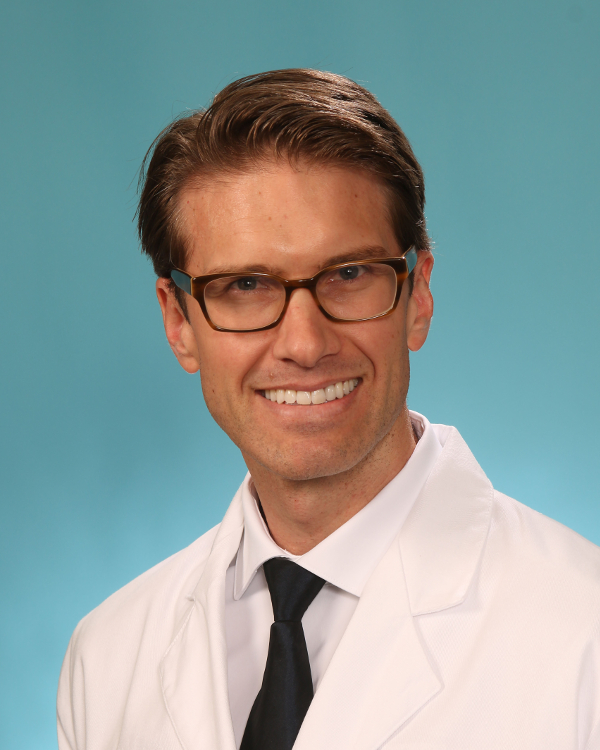
Carl DeSelm, M.D., Ph.D.
Washington University in St. Louis
Project Title: Immune Activating CAR-Modified Antigen Presenting Cells
Grant ID: DP5-OD26427
Carl DeSelm was an undergraduate at Dartmouth College and subsequently earned his MD and PhD from Washington University in St. Louis, where he studied osteoclasts, the macrophages of the bone, under Steven Teitelbaum. He underwent residency training in Radiation Oncology at Memorial Sloan Kettering Cancer Center, where he worked in the laboratory of Michel Sadelain on CAR T cells. Carl is currently an Assistant Professor at Washington University, in the Department of Radiation Oncology as well as the Center for Human Immunology and Immunotherapy. His laboratory focuses on genetically modifying macrophages and dendritic cells with specialized chimeric antigen receptors to both better understand mechanisms of antigen presentation and degradation, and to create more effective cellular therapy for antigenically diverse solid tumors.
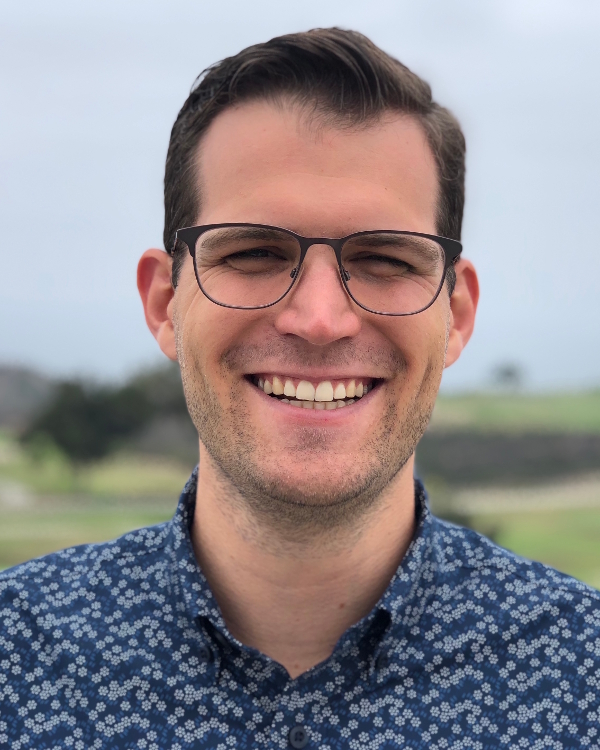
Michael A. Erb, Ph.D.
Scripps Research
Project Title: Targeting Crotonyl-Lysine Chromatin Readers to Disrupt Pathogenic Gene Expression in Leukemia
Grant ID: DP5-OD26380
Michael A. Erb is a Scripps Fellow and Principal Investigator in the Department of Chemistry at Scripps Research. Dr. Erb graduated with a B.A. in Biochemistry from Claremont McKenna College before completing a Ph.D. at Harvard University under the mentorship of Dr. James E. Bradner and Dr. Nathanael S. Gray. As a graduate student, Dr. Erb trained in chemical biology, studying pathogenic gene regulation and chromatin reader proteins in hematologic malignancies. At Scripps Research, his group is studying cancer-specific activities of chromatin regulatory complexes, integrating capabilities in transcriptional genomics, cancer biology, and discovery chemistry to advance the therapeutic science of gene regulation.
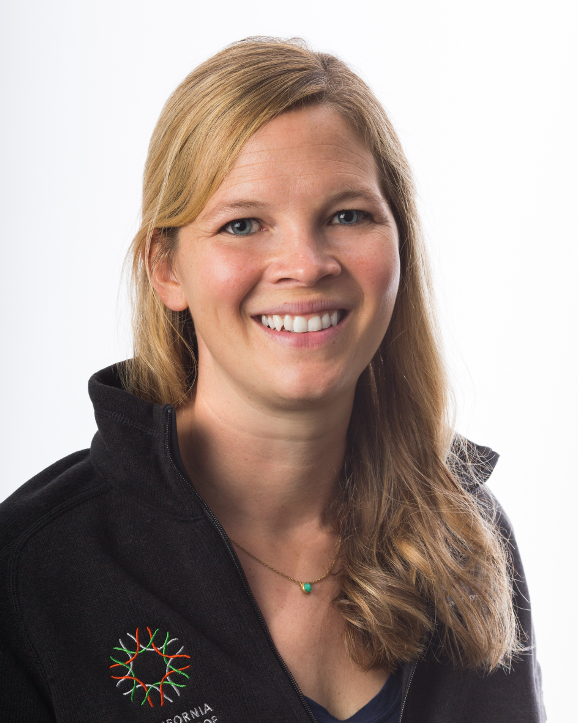
Alison Gould, Ph.D.
California Academy of Sciences
Project Title: Investigating Mechanisms of Specificity in a Bioluminescent Vertebrate-Bacteria Symbiosis
Grant ID: DP5-OD26405
Alison earned her PhD from the University of Michigan in Ecology and Evolutionary Biology where she studied the evolutionary ecology of a bioluminescent symbiosis between a coral reef fish and a luminous bacterium in the Vibrio family. Having established the foundational context with which to study this association at a more mechanistic level, she is currently developing this highly specific, binary association as a new model to study the complex mechanisms regulating our gut microbiome. Alison also has a Master's degree in Marine Biology and Bachelor's degrees in Mathematics and Biology.
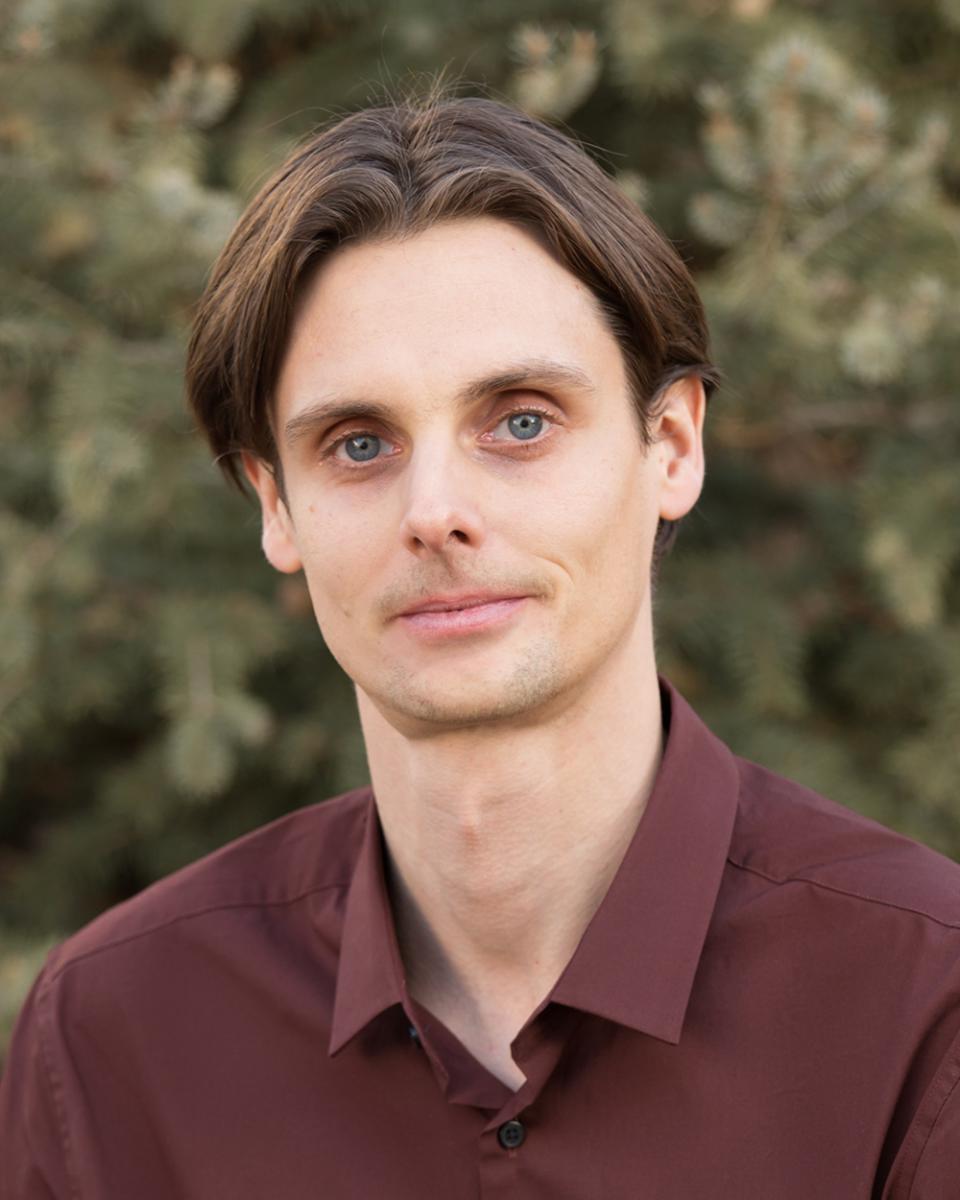
Jasper Heinsbroek, Ph.D.
Medical University of South Carolina
Project Title: Dissecting Ventral Pallidal Subcircuit Contributions to Drug Seeking in Addiction
Grant ID: DP5-OD026407
Jasper Heinsbroek earned his BSc and MSc in Biology and Neuroscience at the VU University in Amsterdam the Netherlands and his PhD in Neuroscience at the Medical University of South Carolina under the mentorship of Dr. Peter Kalivas. The Heinsbroek lab aims to discover novel treatment strategies for drug addiction with a focus on the neural circuits of the basal ganglia. Drug addiction is characterized by recurrent episodes of relapse, and the lab is currently exploring the unique anti-relapse properties of glutamatergic ventral pallidum neurons, as well as their interactions with other cell types in basal ganglia circuits that regulate drug-seeking behavior.
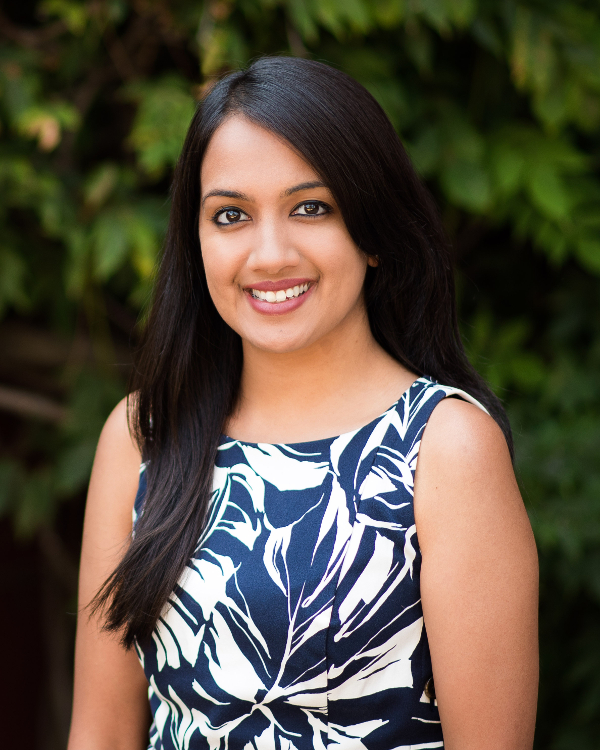
Isha H. Jain, Ph.D.
University of California, San Francisco
Project Title: Redesigning a Neurons Breath: A Modern Twist to Classical Oxygen Biology
Grant ID: DP5-OD26398
Isha is currently a UCSF Sandler Faculty Fellow in the Department of Physiology and Cardiovascular Research Institute. She received her undergraduate degree in Chemical and Physical Biology from Harvard University, where she worked in the lab of Erin O’Shea on bacterial chromosome segregation. She then joined the Harvard-MIT Program in Health Sciences and Technology, working in the labs of Vamsi Mootha and Warren Zapol. During her PhD, Isha discovered that hypoxia could serve as a therapy for mitochondrial disease, which has now led to a Phase 1 clinical trial. More generally, Isha's research program (https://ishajainlab.com/) focuses on understanding the role of oxygen in disease and metabolism, with the goal of developing novel therapies.
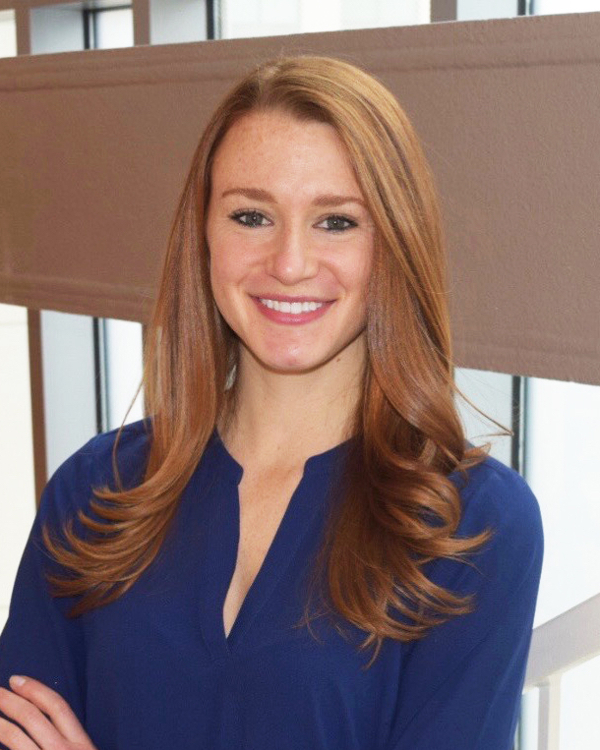
Kristin Knouse, M.D., Ph.D.
Whitehead Institute for Biomedical Research
Project Title: Dissecting and Engineering Reversible Cell Cycle States
Grant ID: DP5-OD26369
Kristin Knouse is a Whitehead Fellow at the Whitehead Institute for Biomedical Research. She completed her B.S. in biology at Duke University, her M.D. at Harvard Medical School, and her Ph.D. in biology at Massachusetts Institute of Technology. For her doctoral research, she adapted single cell sequencing to characterize large-scale somatic copy number alterations in mammalian tissues and used a combination of in vivo and in vitro approaches to reveal the importance of tissue architecture for chromosome segregation fidelity in epithelia. Her laboratory at the Whitehead Institute uses the mouse liver as a physiologic and tractable system for understanding the reversible cell cycle state known as quiescence with the ultimate goal of revealing novel approaches for regenerative medicine.
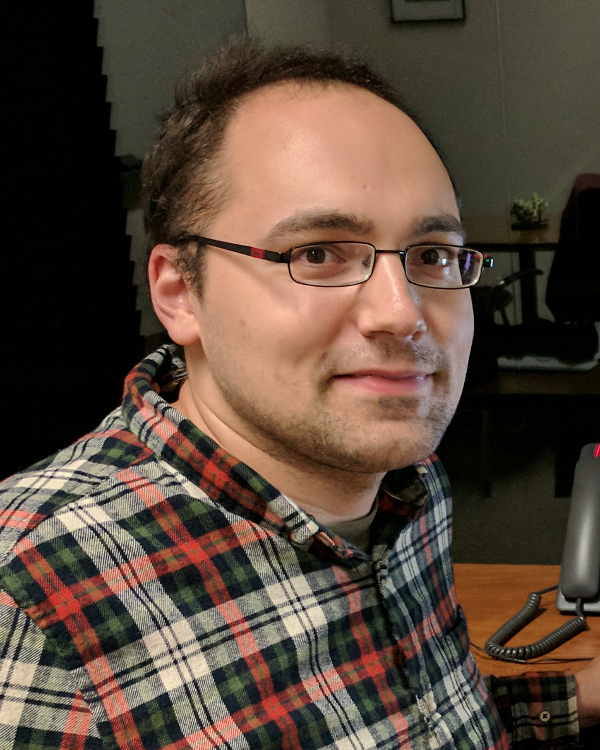
Sergey Ovchinnikov, Ph.D.
Harvard University
Project Title: Exploring the Unknown Protein Universe Using Evolutionary Information
Grant ID: DP5-OD26389
Sergey Ovchinnikov received his B.S. in Micro/Molecular Biology from Portland State University and a Ph.D in Molecular and Cellular Biology from the University of Washington in Seattle. In the lab of Dr. David Baker, Sergey worked on algorithms for protein structure determination using evolutionary information. Currently, Sergey is a John Harvard Distinguished Science Fellow at Harvard University. The Ovchinnikov Lab is interesting in developing a unified statistical model of protein evolution to better understand phylogenetics, protein folding, origins of life/multicellularity, and to mine metagenomic “dark matter” sequences to discover new protein families, functions, and protein-protein interactions.
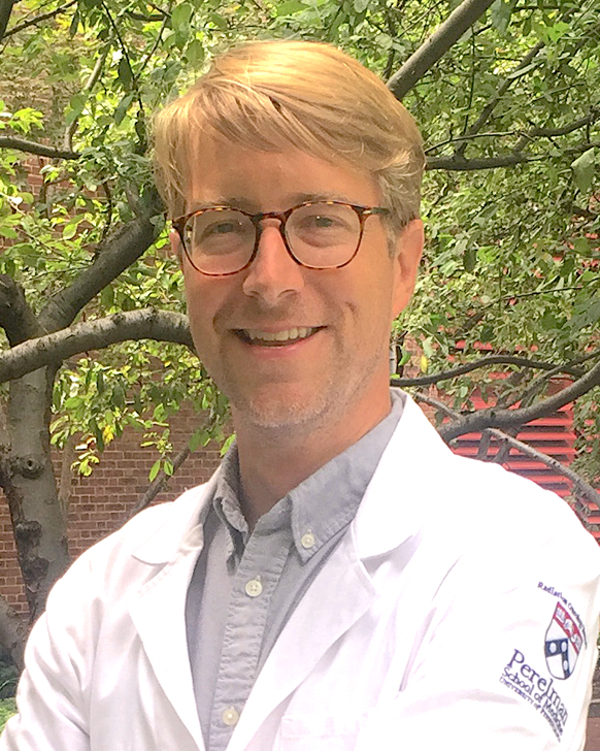
Mark A. Sellmyer, M.D., Ph.D.
University of Pennsylvania
Project Title: Next Generation Tools for Imaging Bacterial Infection and Its Relationship to the Immune System
Grant ID: DP5-OD26386
Dr. Mark A. Sellmyer is an Assistant Professor in the Department of Radiology with an additional appointment in the Department of Biochemistry and Biophysics at the University of Pennsylvania, and is a practicing Nuclear Radiologist. He received his bachelor of science in Chemistry at MIT, his MD/PhD in a Medical Scientist Training Program in Chemical and Systems Biology with Professors Tom Wandless and Chris Contag at Stanford, and his clinical training in Radiology at the University of Pennsylvania. His research addresses problems in the fields of cancer biology, immunology, and infectious disease by focusing on the development of molecular tools that detect and manipulate biologic processes in cells, animals, and humans. Newly proposed research involves technologies that allow researchers and physicians to monitor a bacterial infection with greater sensitivity and specificity than conventional imaging techniques. He has invented new positron emission tomography radiotracers, co-founded a start-up company Vellum Biosciences, and has been awarded the Stanford Bio-X Bowes Graduate Student Fellowship and the Burroughs Wellcome Fund Career Award for Medical Scientists.
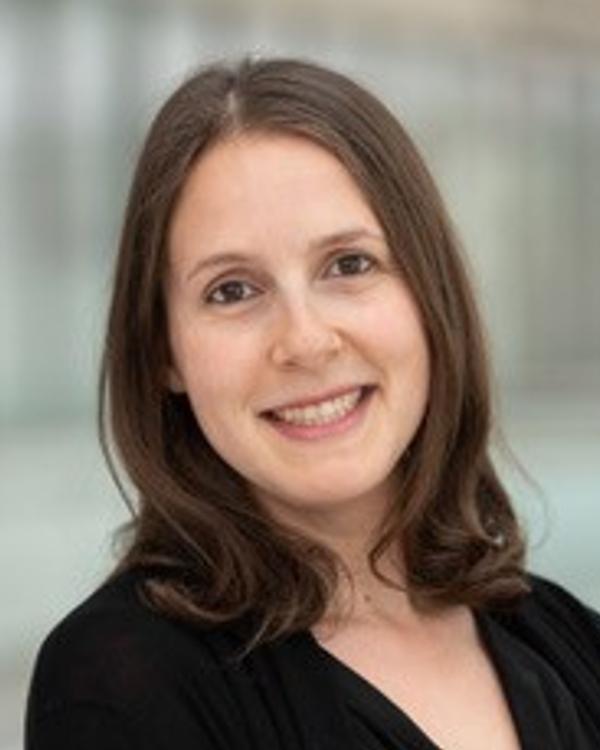
Anna Wexler, Ph.D.
University of Pennsylvania
Project Title: Do-It-Yourself and Direct-to-Consumer Medicine and Science: Assessing the Public Health Issues and Regulatory Gaps
Grant ID: DP5-OD26420
Dr. Anna Wexler is a fellow in Advanced Biomedical Ethics at the Department of Medical Ethics and Health Policy at the Perelman School of Medicine at the University of Pennsylvania. Her research focuses on the ethical, legal, and social issues surrounding emerging technology, with a particular focus on do-it-yourself medicine and direct-to-consumer health applications. She received her Ph.D. from MIT in the HASTS (History, Anthropology, Science, Technology & Society) Program, where her dissertation centered on the DIY brain stimulation movement. Dr. Wexler also completed her undergraduate work at MIT, where she received two Bachelor’s of Science degrees, one in Brain and Cognitive Science and the other in Humanities and Science with a focus in Writing. Prior to her Ph.D., Dr. Wexler worked as a science writer and documentary filmmaker, and she co-directed and co-produced the feature documentary film Unorthodox (2013).


